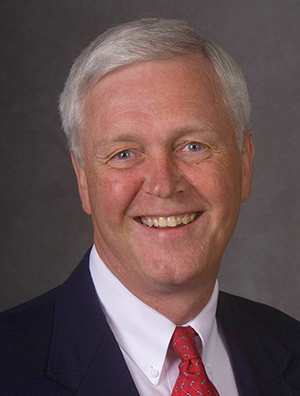From Complexity to Clarity – Bringing Public Health Laboratory Science into Focus

Annual reports are usually modest retrospectives of an organization’s year, and, especially for public agencies, they are important as a matter of accountability. Thus, within these pages you will find an overview of the State Hygienic Laboratory and our work in areas of our scientific focus. However, because we live in an era marked by complexity and uncertainty, I thought my introduction to the report ought to ask you to look beyond the reflections to the challenges ahead.
It has been my great privilege to serve as Director of the Iowa State Hygienic Laboratory for the last 11 years, a period of profound changes in the lab. In 2010 we moved into a state-of-the-art facility in Coralville. Enabled by amazing technological advances, we implemented advanced molecular methods that more quickly produce significantly greater specificity for epidemiologic investigations. In the future, we believe these advancements will require new dimensions of analytical capabilities and strategies for surveillance and intervention. We believe our vision is accurate, but we also know that these are complex concepts that are complicated by uncertain and competitive policy and financial environments. While the possibilities for the laboratory are many, achieving its benefits will require diligence in understanding the best courses of action. It won’t be easy.
Certainly public health is no stranger to change. I started my career in public health as HIV/AIDS was exploding in public consciousness. It was a time when a new understanding of the social dimensions of disease was made apparent. Over the intervening years we have experienced the unexpected episodes of terrorism, the all-too-frequent occurrences of natural disasters and the emergence of other resurgent or novel diseases. In response, we have also seen the upgrading of our public health facilities, the discovery of new technologies, and the development and implementation of new strategies to best address the changing reality. The role of science and of its laboratories has been critical to achievement. This annual report will capture some of those accomplishments and point to promising future developments.
The first hurdle is achieving a broadly based understanding by policymakers and the people of Iowa of what is necessary to reach this promising future. Unfortunately, much of what goes on in the lab can be described by the “Black Box” metaphor, i.e., a “device, system or object which can be viewed in terms of its inputs and outputs without any knowledge of its internal workings.” (Wikipedia)
The advanced technologies within that box may seem esoteric, but their outcomes in better health are not. Iowa has taken a leadership role in helping students make that connection through its many science, technology, engineering and mathematics (STEM) programs. Growing these disciplines will help us lift the lid off the black box of the public health laboratory to better understand how all advancements can help achieve a better quality of life for all Iowans.
In my opinion, the strategy is pretty straightforward. The state can achieve better public health outcomes if we harness capabilities from scientific advancement, create a coherent public health laboratory system, apply analytical tools to derive strategies from complex information, including the development of a well-informed workforce, and promote prudent policies that enable the best in scientific practices. The State Hygienic Laboratory, as it is or as it could be reconfigured, should be seen as the mechanism that can organize these functions on behalf of all Iowans, bringing laboratory science from complexity to clarity in practice.

Christopher G. Atchison, Director
With great appreciation
For more than 11 years, Christopher Atchison guided and led the SHL in its service to the state of Iowa and to the broader public health community. Through his leadership, SHL increased its national prominence in laboratory science, its collaborations with federal and state partners, and the awareness of SHL’s unique and critical role in public health. Many new initiatives were developed that have far exceeded their expectations.
On Jan. 5, 2018, Director Atchison retired from the SHL and the University of Iowa. We are grateful for his vision and for helping us to be all that we can. We will continue to rely on Director Atchison’s expertise as we partner with him in the next chapter of his career.